#Street and Smith’s Unknown
Text
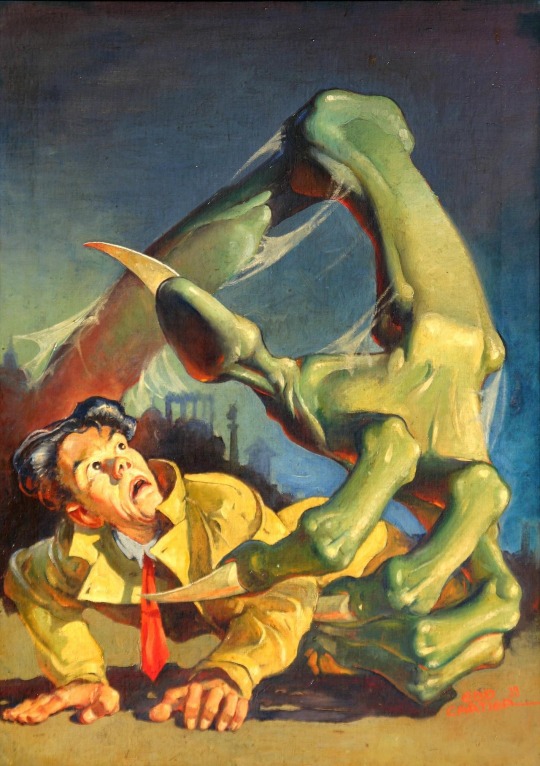
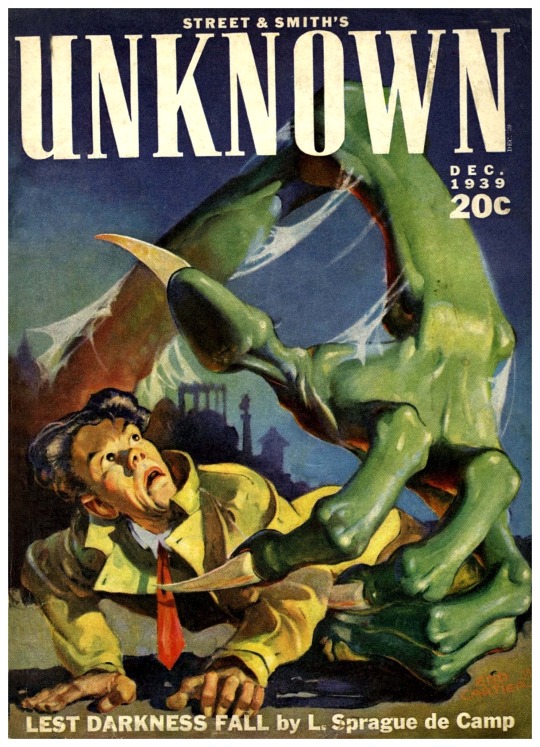
Edd Cartier “Lest Darkness Fall” by L. Sprague de Camp, Cover for Street and Smith’s Unknown (December 1939)
Source, source
7 notes
·
View notes
Text
100 Fiction Books to Read Before You Die
The Namesake by Jhumpa Lahiri
The Book of Margery Kempe by Margery Kempe
The Bluest Eye by Toni Morrison
A Small Place by Jamaica Kincaid
The God of Small Things by Arundhati Roy
Frankenstein by Mary Shelley
We Need to Talk About Kevin by Lionel Shriver
The Prime of Miss Jean Brodie by Muriel Sparks
The Girl by Meridel Le Sueur
The Kitchen God's Wife by Amy Tan
The Secret History by Donna Tartt
The Color Purple by Alice Walker
The Poisonwood Bible by Barbara Kingsolver
Veronica by Mary Gaitskill
Americanah by Chimamanda Ngozi Adichie
Alias Grace by Margaret Atwood
Jane Eyre by Charlotte Bronte
The Bell Jar by Sylvia Plath
Mrs. Dalloway by Virginia Woolf
Kindred by Octavia Butler
Middlemarch by George Eliot
Pride and Prejudice by Jane Austen
To Kill a Mockingbird by Harper Lee
Uncle Tom's Cabin by Harriet Beecher Stowe
Their Eyes Were Watching God by Zora Neale Hurston
Passing by Nella Larson
The Left Hand of Darkness by Ursula K. Le Guin
Brideshead Revisited by Evelyn Waugh
Death Comes for the Archbishop by Willa Cather
Play it as it Lays by Joan Didion
The House of Spirits by Isabel Allende
Wuthering Heights Emily Bronte
Little Women by Louisa May Alcott
White Teeth by Zadie Smith
The Power by Naomi Alderman
The Street by Ann Petry
The Age of Innocence by Edith Wharton
Mary Barton by Elizabeth Gaskill
An American Marriage by Tayari Jones
Small Island by Andrea Levy
The Idiot by Elif Batuman
The Outsiders by S. E. Hinton
The Price of Salt/Carol by Patricia Highsmith
Room by Emma Donoghue
The Sea, The Sea by Iris Murdoch
Garden of Earthly Delights by Joyce Carol Oates
Wide Sargasso Sea by Jean Rhys
Wise Blood by Flannery O Conner
Gone Girl by Gillian Flynn
Picnic at Hanging Rock by Joan Lindsey
Rebecca by Daphne du Maurier
Salt to the Sea by Ruta Sepetys
Atlas Shrugged by Ayn Rand
The Awakening by Kate Chopin
Fried Green Tomatoes at the Whistle Stop Cafe by Fannie Flagg
The House on Mango Street by Sandra Cisneros
The Well of Loneliness by Radclyffe Hall
House of Incest by Anaïs Nin
The Mandarins by Simone de Beauvoir
The Lottery by Shirley Jackson
A Little Life by Hanya Yanagihara
Corregidora by Gayl Jones
Whose Names are Unknown by Sanora Babb
Half of a Yellow Sun by Chimamanda Ngozi Adichie
The Handmaid's Tale by Margaret Atwood
See Now Then by Jamaica Kincaid
The Lowland by Jhumpa Lahiri
Beloved by Toni Morrison
The Joy Luck Club by Amy Tan
The Goldfinch by Donna Tartt
Demon Copperhead by Barbara Kingsolver
The Ministry of Utmost Happiness by Arundhati Roy
To the Lighthouse by Virginia Woolf
My Antonia by Willa Cather
Democracy by Joan Didion
Black Water by Joyce Carol Oates
The Violent Bear it Away by Flannery O Connor
Sharp Objects by Gillian Flynn
My Cousin Rachel by Daphne du Maurier
The Fountainhead by Ayn Rand
I Must Betray You be Ruta Sepetys
The Haunting of Hill House by Shirley Jackson
The Mare by Mary Gaitskill
City of Beasts by Isabel Allende
Fledgling by Octavia Butler
A Wizard of Earthsea by Ursula Le Guin
The First Bad Man by Miranda July
Sense and Sensibility by Jane Austen
Moses, Man of the Mountain by Zora Neale Hurston
Disobedience by Naomi Alderman
Quicksand by Nella Larsen
The Narrows by Ann Petry
The Blood of Others by Simone de Beauvoir
Under the Sea by Rachel Carson
Go Set a Watchman by Harper Lee
Under the Net by Iris Murdoch
The Birdcatcher by Gayl Jones
Desert of the Heart by Jane Rule
In the Time of the Butterflies by Julia Alvarez
The Memory Police by Yōko Ogawa
@gaydalf @kishipurrun @unsentimentaltranslator @algolagniaa @stariduks @hippodamoi
337 notes
·
View notes
Text
Jude's Timeline
Since there are no dates or determinable time period (beyond the fact that it's set in the 21st century) in A Little Life, I love trying to figure out the timelines of the characters themselves. So here's Jude.
Newborn
Born in South Dakota
Abandoned as a newborn and taken in by the monastery
5 years old
Received a fossil from Brother Luke for his birthday
7 years old
Had his hand burnt by Father Gabriel
Sexual abuse by the Brothers began
8 years old
Given a set of wooden logs for his birthday
Abducted by Brother Luke and forced into prostitution
11 years old
Began cutting himself
12 years old
Rescued from Brother Luke
Placed in a boys group home in Montana
13 years old
Meets the Learys
Beaten by the counselors, causing life-long scarring on his back
14 years old
Runs away from the group home in Montana
Abducted by Dr. Traylor and held captive for four months
15 years old
Run over by Dr. Traylor, causing his life-long disability
Rescued from Dr. Traylor
Meets Ana
Begins living with the Douglasses
16 years old
Ana passes away
Briefly lives in an emergency shelter
Has a summer job at a bakery
Leaves Philadelphia, and starts his undergraduate study at an unnamed college in Boston
17 years old
Met Andy Contractor
Gifted a model house by Malcolm
18 years old
Began working as a classics professor's amanuensis
Dr. Traylor dies in prison
20 years old
Graduated from his undergraduate study and goes to France for the first time
Began Law School at (presumably) Harvard
Began his Pure Math Master's degree from MIT
Met Harold Stein and Julia Altman
21 years old
Stayed at Harold and Julia's house for the first time and imagined they were his parents
Had an unspecified internship during the summer
Invited to Harold and Julia's summer house, Truro, for the first time
22 years old
Learned to drive (from Harold)
23 years old
Graduated Law School
Graduated Masters at MIT
Began his clerkship in Washington, living in the living room of an unnamed legislative assistant
24 years old
Given keys to the Cambridge house by Julia
25 years old
Moved to New York, living at Malcolm's parents' house
Began working at the U.S Attorney as an assistant prosecutor
Moved out of Malcom's parents' house to Lispenard St
26 years old
Has his first episode in front of Harold, who sings to him
Willem finds out about his cutting
Jumps off a roof with his friends at Lispenard St
27 years old
Broke the mug that Jacob made
Attended Andy's wedding
29 years old
Began tutoring Felix
30 years old
Adopted by Harold and Julia <3
31 years old
First contacted by Lucien after working on case for Thackery Smith
Finalized the contract for a job at Rosen Pritchard, after the elevator broke once more at Lispenard
Contacted by Rob Wilson (Some unknown from the home)
32 years old
Bought his Green Street apartment
35 years old
Became a partner at Rosen Pritchard (the youngest one in the firm's history)
36 years old
Picked out a suit for Malcolm for his wedding that would happen that year
Began the renovations for Greene Street
37 years old
Broke off his friendship with JB after the latter mocks his disability
38 years old
Scolded by Harold out at dinner for working at Rosen Pritchard
40 years old
His former Master's advisor, Dr. Kashen, passes away
Attended his former classmates, Lionel and Sinclair's, wedding
Began dating Caleb Porter
Broke up with Caleb Porter
41 years old
Attempts suicide and is briefly institutionalized
Goes to Morroco
43 years old
Caleb port a potty dies <3
Began dating Willem
45 years old
Has his big fight with Willem and tells him about his childhood
46 years old
Buys a flat in London on Harley Street
The last time he would truly walk on his own. No aides, no prosthetics. This is during a trip to Bhutan
47 years old
Starts getting lots of wounds on his legs and bone infections
48 years old
Gets his legs amputated
49 years old
Starts walking again
50 years old
Set up scholarships for Julia and Harold at their respective universities
Loses both Willem and Malcolm (and Sophie) to a drunk driving accident
51 years old
His loved ones hold an intervention for him
52 years old
Went to Rome
Taught Harold how to cook
Asked to be the chairman of Rosen Pritchard
53 years old
Took his own life :(
If there's anything here you think should be added let me know. And of course this isn't every single thing that happened to Jude, just some main events or events that helped pinpoint the timeline. So if there's a scene/event/anything that you'd like to know the timeline of, let me know (inbox)
101 notes
·
View notes
Text
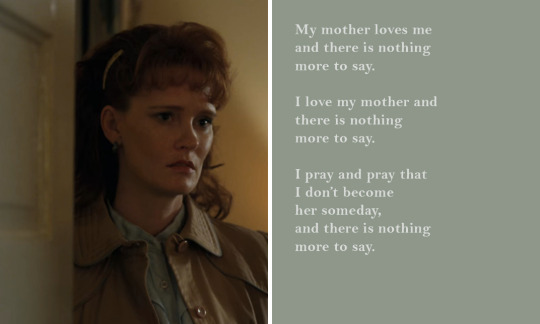


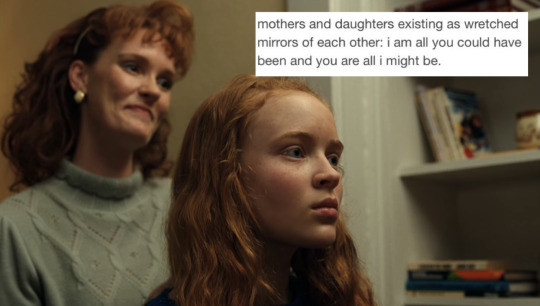
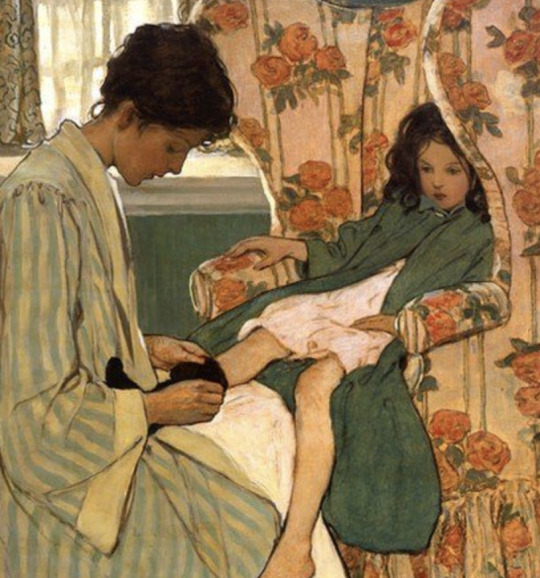



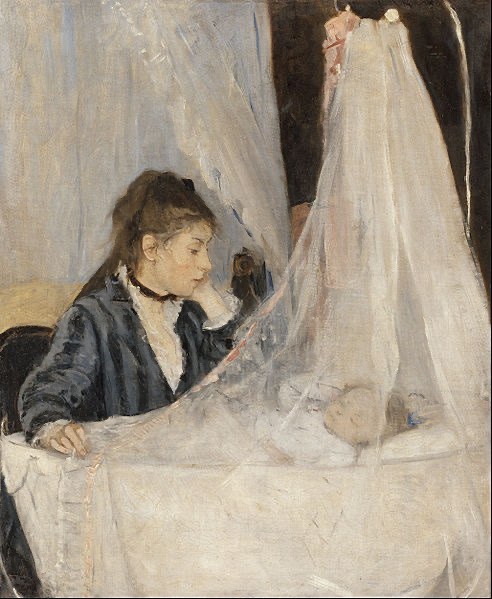

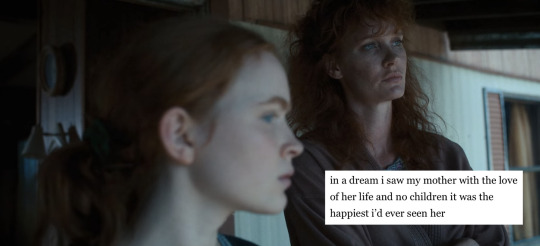

the flesh i burned, ritika jyala // my mother & i, lucy dacus // the runaway bunny, margaret wise brown // post, honeytuesday // a mother's day, jessie willcox smith // mother wound healing, bethany webster // unknown // gingersnaps, 2000 // the cradle, berthe morisot // poplar street, chen chen // the sun and her flowers, rupi kaur // how to cure a ghost, fariha róisín
#stranger things#max mayfield#susan hargrove#susan mayfield#web weaving#big day for people who hate me#you should be thinking about them#so complicated so sad if i ever get around to making one of these for lucas and charles i will wipe this platform of the planet
262 notes
·
View notes
Text
They ended up south of the hospital mainly because Dean had to pick a direction when they pulled out of the lot and, considering the day he’d had, a coinflip was as good a way to make a decision as anything. A motel even if it’s two in the afternoon, and two beds because it’s always two beds, and he drops his bags on the one closer to the door and wants to flop face-first straight into the ugly brown comforter but he feels like if he falls he’ll never get up again. His shoulders and low back and the arches of his feet all hurt. He hardly even had to fight, today. Go figure.
Sam’s flicking the light in the tiny closet, checking the mini-fridge, casing the bathroom. “Huh,” he says, for no reason Dean can tell. Drops his bag on the luggage rack and shrugs out of his jacket. Absently pops his neck. Says, then, “I could eat, you want—I don’t know, delivery something,” like he didn’t almost check out on Dean, like he didn’t disappear in the middle of the night like every one of Dean’s worst nightmares, like in the middle of driving about ninety through too-crowded city streets Dean didn’t get a call on his cell from an unknown number and about have a heart attack when the woman on the other end said Mr. Smith, you’re listed as the emergency contact for Mr. Sam Smith. I’m afraid— Like the world didn’t just crackle out to static right then.
He’s standing there, though. On two legs and with his back up. Going for the yellow pages under the room phone, flipping to the back. “Number One China Palace,” he mutters, and glances across at Dean, and is alive. Alive and walking around and his brain where it’s meant to be. He frowns, the phonebook dangling against his thigh. “You okay?” he says, and Dean says, “Yeah,” and then he says, “God,” and then he sits down hard enough on the bed that he almost bounces, and he plants his hands on his knees and has to breathe, in through his nose and out through his mouth. Acid roiling up his throat. He wants a drink so bad he could kill something.
“Dean?” Around the bed, crouching. Alive and compos mentis and hovering a hand over Dean’s leg, like he’s worried Dean’s hurt somewhere he can’t see. Except, no, that was Sam—that was Sam all this last goddamn year, or longer, all this time Sam’s head was crumbling or boarded up but still crumbling behind or trapped in hell with a shark-smiling sociopath wearing his face or even before, when he thought he had to die to prove something to the world, or when he had to rot himself to prove something to Dean, or when—Dean takes another deep breath and blows it out extra slow, his heart doing something weird in his chest, and Sam stops with the hover-hand crap and grabs his thigh, frowns up at him, says, “What—hey, hey.”
“I’m not having a panic attack,” Dean says.
“Looks like it,” Sam says, but sits back on one heel, and the death-grip on Dean’s thigh turns more into Sam just—keeping a hand on him. Heavily warm. “You good?”
Dean fishes in the inner pocket of his jacket and finds the flask, takes a pull. Sam’s eyes tighten but he doesn’t make a comment. The whiskey’s crap and it burns all the way down but he feels like he breathes better after. Sam watches his face, his hand sliding a little up the side of Dean’s leg. Like he hasn’t—god, since before Cas pulled that shit-ass trick with Sam’s wall. Dean wants to pull Sam up by the wrist and fall backwards on the bed and sleep for a goddamn year, Sam laying heavily over him like the worst sweaty-nasty suffocation torture Dean ever accused him of being, when they’d share beds sometimes, and Sam would roll his eyes and pull Dean in by the small of the back and Dean slept better than maybe he ever had. Why did they ever stop that. What would it take, to go back.
“And it’s really all just—gone,” Dean says, picking up the staggered confused stupid back-and-forth they’d had back in that awful hospital room, while Cas moaned shaking on the bed and Meg held him grimly down. “Just like that.”
Sam’s cheek sucks in on one side. “Not just like…” he starts, and then looks at Dean’s face, and his chin drops. “But—yeah. I’m okay. Not even that tired, for some reason. It’s just you and me in here, I swear.”
It always was but the way Sam says it makes Dean’s shoulders ripple, like someone’s standing directly behind him, watching. He shudders totally without meaning to and Sam’s head picks up and he shifts forward, kneeling, his hands going to Dean’s knees, gripping firm. “Don’t get hit by a car again,” Dean says, and Sam huffs and says, “I’ll do my best,” and Dean reaches forward and grips Sam’s shirt and feels Sam’s skin warm under it and says, “I mean it,” and Sam looks him in the eyes and doesn’t say that Dean’s being a dumbass and doesn’t even seem like he’s thinking it, really, and he says, “Yeah, Dean,” and, “Okay?” and Dean doesn’t know the answer to that. It has to be yes because Sam’s alive and here and that makes it a ranked good day, by Dean’s usual metric, but the time when he wasn’t isn’t far enough in the rearview for Dean’s taste. That white hospital room and the white bed and Sam sitting there like he didn’t care so much about the difference between alive and not. When the difference there, for Sam, was the only thing in Dean’s life that had ever mattered. When it was pretty much the only thing he was hanging his hat on, these days, and if it came to it, if any time between now and the shitty future Dean could see, the answer flipped from one to the other, Dean didn’t know if he’d be able to make it in the world that was left, after. He just didn’t see how that could be so.
Sam watches him, quietly. Tightens his grip on Dean’s legs and then stands up. “I’m ordering Chinese,” he says, steady. “Gonna take a shower. Find something to watch, huh?”
Dean blinks, wipes his hand over his face. “Yeah,” he says.
“We should’ve gotten a king bed,” Sam says. He half-smiles, when Dean looks up at him. “So you won’t bitch about kicking.”
“Wouldn’t have to if you weren’t Chuck Norrising in your sleep,” Dean says, and Sam really smiles, then. Goes for the phonebook, and the Chinese. Ordering extra broccoli, the bitch. Dean grips the edge of the mattress, and manages to stand up after all, to deal with his bag, to find the remote. Sun coming in through the gaps in the curtains. Sam, smiling at something Dean can’t hear. The rearview feeling, for a minute, a little less crowded.
#my writing#happy wincest wednesday#ww lottery#a random ficlet for episode 143#love dumping all my problems onto a random convenient angel who refuses to die
75 notes
·
View notes
Text
You left your diary at my house.
Shuri Udaku x Black Fem Reader
“You left your diary at my house and I read those pages, you really love me baby.” -Wait a Minute by Willow Smith. (This was my inspo for writing this :))
↠︎Fluff
“So let me get this straight, you’ve left some sort of book in the princess’s lab and you’re on edge because of it?” Okoye asked, she didn’t let her judgment towards you go unknown, looking at you as if you were a crazy woman on the street. You flinched under her gaze, trying to ignore the chastisement that laid in the depths of her deep umber eyes.
“It’s not just a book, it’s filled with stuff.” You exclaimed, to the general who did nothing but scoff, her distaste prominent in her features. Creases in her brows, she definitely didn’t find pleasure in you snooping into the wakandian princess’s lab, especially without her knowing, but she knew that even without her accompanying you, you would’ve still acted on your own account.
Calling it a mere “book” was a mere understatement, you had put your whole heart into that pink notebook, every page written from the depths of your soul, every thought, every emotion and every revelation you had went through laid in one of those many lined pages, written in blue pen ink, signed with your signature at the very bottom, although you prayed no one would ever see it. You knew that if Shuri got her hands on your whole life, that would change your whole stance with her, the things you wrote about her were more than friendly, each page you dedicated to her was filled with passion and utter love, love that you didn’t want her to find out about, at least not like this. Not by your own diary, but your own words.
“What stuff?!” She asked, raising her voice, frustrated with the lack of intel she was receiving from you. If there’s anything she hated most, it was being left in the dark, especially if she was risking her title just for you to steal back a book your own irresponsibility lost you.
“Stuff she shouldn’t lay her eyes on, at all.” You loudly whispered, feeling your nerves creep up on you. Your palms were sweating, so much you had to wipe them on your sides, your heart betrayed you, beating out of your chest with every step closer you came to her lab. You were hoping that she had already made her exit, hopefully somewhere far away from the comfort of her lab. It would be quite awkward to explain, if she did catch you and you didn’t think you had the power to mansplain your way out of this one.
“I’ll get it.” You whispered, wiping the glistening sweat off of your palms again. She gave you a swift nod, eyes giving you a warning as to say, hurry up.
You completely sped through her lab, greeted by an upbeat Grio, ignoring his greeting, not with the intention to be rude, but to keep him from attempting to make small talk with you, something you were usually down for, just not at the current moment. You walked up the stairwell, more quicker than you ever had, scared with every step that she would come and find you intruding her lab.
It felt wrong, to infiltrate her lab like this, without her knowing but you felt as if you were protecting all your friendship with her had at stake, knowing in the back of your mind that if she read those love letters you had dedicated specifically to her, it would be over for you. Your secret would be out, you could no longer hide behind your useless reasoning as to why you wanted to be near her all the time, nor could you defend the times where you had lost your composure, taking her harmless words and creating more meaning than she would intend which would lead you into a stumbling mess.
Finally you set your eyes on it, unmistakably yours. You placed the diary in your hands, running a finger over the cover, relief drowning over your body as you held it tightly, knuckles near the color white as you attempted to make your exit, satisfied that your entry had gone correctly. Maybe a little too satisfied, because just upon the time of your departure, Shuri had made her arrival into her office, talking to Okoye who was attempting to distract her, knowing your time was up. “Shit.” You muttered under your breath, scanning for a way around her and Okoye’s conversation. Around the stairs. You thought, catching the very same entrance you had previously entered.
You could take your chances, sneak across the many things she had placed, but knowing Shuri, whose senses were even more keen due to her taking the heart shaped herb, she would be able to see you with her heightened sense of sight, and killer peripheral. “Ziyatha, (fools) that’s all they are, they act so close minded sometimes.” She said, anger weaved in her tone, clearly bothered by something. You didn’t mean to eavesdrop, but a part of you tugged you to do so. You resisted your urge, her voice in the background as you slowly creeped toward the exit. You were praying you could go unnoticed, hoping that whatever she was rambling on about, would be enough to keep her occupied and away from suspicion.
“Speaking of foolery, (name) could you please reveal yourself now? Let’s not trouble yourself trying to sneak out of the very lab you snuck into.” She said, freezing every muscle in your body. To say you were stumped would be a complete understatement, you couldn’t move, your body flooded with embarrassment, hot in the face. You stayed down, thinking that with silence you would disappear from her mind. You could feel her, arms crossed, a look of amusement plastered on that gorgeous face of hers as she thought of what a stupid decision you had made, not even thinking about the cameras that were everywhere in her lab. She was the princess of Wakanda and one of the smartest people on earth, did you really think you could ease by her unnoticed?
Cursing yourself out in your mind, you slowly peeled out from where you were hiding. Refusing to look in her direction, knowing that the look on her face would only fuel your regret more. “Okoye could you please excuse us?” She asked, Okoye giving you an apologetic look before easing away. The silence had never been more louder, you were too scared to speak, afraid of the words pouring out of your mouth, only digging your grave deeper. She was the first to say a word, sighing as she inched near you.
“What were you doing in here?” She questioned, face scrunched in pure and utter confusion. “Retrieving an item that I left in your lab, earlier today when you showed me your sketches and stuff I left something on the table upstairs.” You muttered, finally forcing yourself to look at her. “What was it, what was so important that could’ve made you sneak into my lab without even asking me?” She said, her voice laced with disappointment at you, scolding you like a mom would. “Nothing.” You said, but she gave you a humbling look, sending you into a downward spiral.
“It better be something, intombazana. (Girl) You know better, if you wanted entry all you had to do was ask, not sneak around like a mad man.” She said, trying to figure out for the life of her, what compelled you to do so. “A book that was dear to me, that’s all.” You said softly, your shame written across your face. “Oh, you mean this?” She pulled your diary from her pocket, and when you attempted to reach for it, she held it up, placing a hand in front of your face. You opened the one you had, every page empty with Shuri’s poorly drawn smiley face and her signature right beside it.
“Shuri, please. I apologize to you, but I really, really need that back.” You begged, hands in a praying stance. Shuri smiled cunningly, “What are you so scared of?” She said, not even knowing the half of it. You wanted so badly to tell her, because in reality that was true, you are scared of her finding out about how much you truly loved her, you were scared of her finding out that you pictured her more your lover than a mere friend, you were terrified, every nerve in your body struck. “Nothing, now please hand it back.” You pleaded, a slight drag in your words as you made another lost attempt to grab it from her.
“Not before I ask you this.” She said, still holding your book up high, dangling it in your face like a dog after treats. “What, what is it?” You said, eager to get this done and over with, so you could finally have your diary in the security of your hands. You most definitely had learned from your mistakes, to never leave something so crucial out in the open like that again, so you wouldn’t end up in these circumstances.
“How long have you been in love with me?” The question glided out of her mouth so smoothly you almost didn’t catch it, except you did. “Wha-what would make you think-” You paused mid sentence, the thing you dreaded the most had became apart of your reality. She had read your diary. She had read everything you wrote about her, those letters, those stupid letters. It hit you like a ton of bricks, your heart increased as you had a slight pant in your breath. “The year after I met you, about three years now.” You came clean, finally ripping off the bandage, exposing your wounds to Shuri, who was now a spectator of your most vulnerable state.
“Wow.” She exclaimed, her single word reaction made you feel far more smaller, you felt as if you had shrunk. “The way you write about me is so-” You cut her off, eyes widening at her sentence. “Weird, I promise I won’t ever do it again. Matter of fact, I can even understand if you don’t want anything to do with me at all.” The last part had came spilling out, word vomiting to keep from breaking down in front of Shuri, who was genuinely concerned for you. “No, it’s not. I just wish you would’ve told me sooner, you made it hell for the both of us, umfazi.” (Woman)
The both of you? How could you have made it hell for her? The meaning of her words didn’t quite register with you. “What do you mean?” You said, making her roll her eyes at you, pulling you close by the end of your hoodie. “I mean, I love you.” She said, bringing a finger to your chin, tilting it upwards so you could see the truthfulness behind her statement. You felt a strange warmth embrace you, content with her words. I love you. You repeated her words over in your head, til you could finally believe them. She noticed your disbelief, laughing at your expression.
She placed a kiss on your forehead, “Yes, I said it. Try not to look so struck by lightning-ish.” She joked, cupping your face with her hands. “Say it again.” You said, feeling far more bolder than you were before. “Hm, so you make the princess of Wakanda fall for you and now you think you can give commands?” She questioned, a playful glint within her eyes. She crossed her arms over her chest. “I love you, (name) and I have for so long.” She said. You closed the gap between yours and her lips, catching her by surprise but she welcomed you with open arms, hands trailing down to grab on to your waist.
You kissed her deeply, three years of the bottled love you had stored just for her being shown in just one action. You ran your fingers through her hair, forehead together while you both basked in the moment, the moment your love had finally been set free.
A/N: This is not my best writing work, at all. I struggle a lot with writing stories still so please forgive me but give it a few more months, I’ll learn how to do it better.
#queen shuri#shuri imagine#shuri udaku#black panther#shuri fluff#shuri x reader#black reader#shuri fanfiction#letitia wright shuri#black panther 2
837 notes
·
View notes
Text
Book recs: great, unique and creative worldbuilding in fantasy books
A note: this is very much a subjective list. I typically do not care much for historical medieval-esque settings (though seeing as I'm a big critical role fan, obviously there are exceptions), but rather prefer settings that mix up historical and modern, fantastical and scientific, and make up entirely new things and societal structures not based on our world.
Other book rec posts:
Really cool sci-fi worldbuilding
Mermaid books
Dark sapphic romances
Vampire books
Without further ado, let’s go!
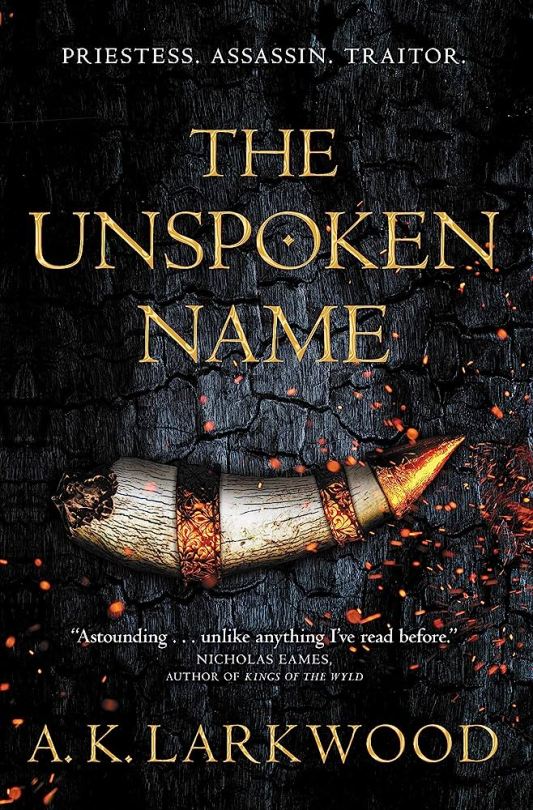

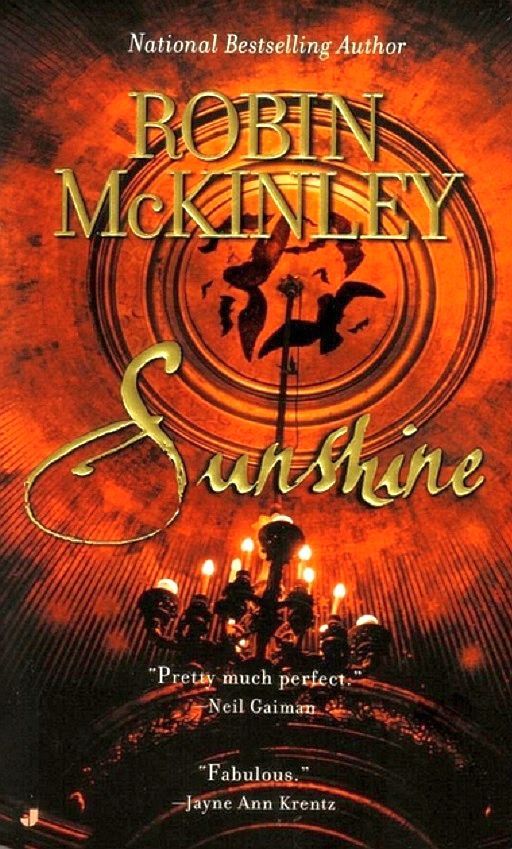
The Unspoken name by A.K. Larkwood
Honestly there's so much going on in this one worldbuilding-wise that it's kind of hard to explain. Portals, flying ships, orcs, elves, creepy snake gods, cults, immortal evil mages who traumatize teens as their hobby. It's also very queer!
A Master of Djinn by P. Djèli Clark
Set in an alternate 1910's steampunk Cairo, where djinn and other creatures (among other things, creepy steampunk angels) live alongside humans. We get to follow an investigator as she races to catch a criminal using a powerful object to control djinn and stir unrest. Fantastically creative and fresh, and also features a buddy cop dynamic between two female leads as well as a sapphic romance.
Sunshine by Robin McKinley
Urban fantasy on a level of its own, where dangerous magic exists alongside humans. It keeps you guessing and much is left unexplained; if you want clear answers and explanations to everything you might be disappointed, but if you want a world that feels mysterious and dangerous and lived in you'll probably like it. It follows a baker who, after getting kidnapped by vampires, gets embroiled in a dangerous struggle.
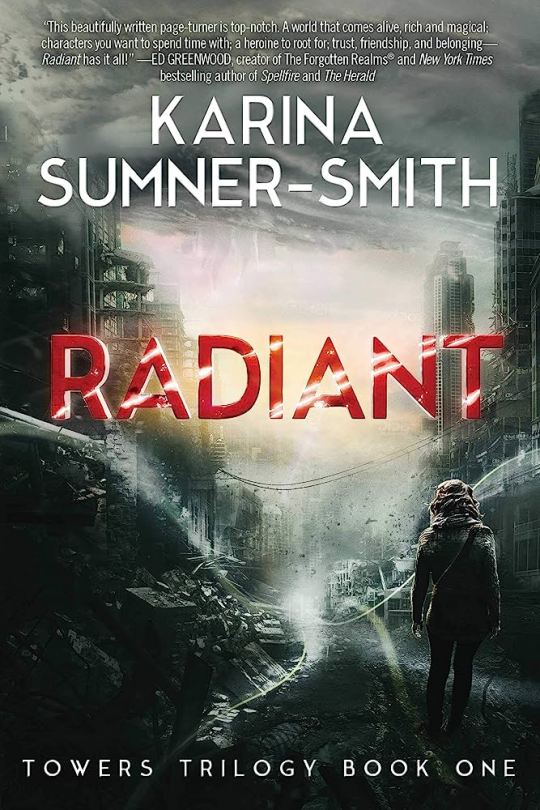
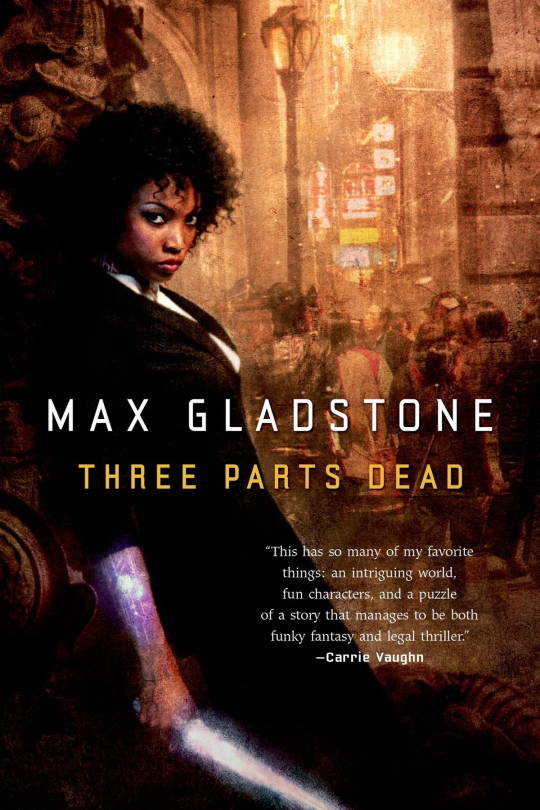
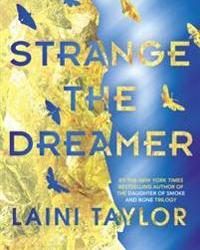
Radiant (Towers Trilogy) by Karina Sumner-Smith
A strange mix of fantasy, sci-fi and post apocalyptic, Radiant follows a girl without magic in a world where magic is currency. Those with much of it live in magically floating towers, while everyone else scrambles to survive in the ruins of an old city left devastated from an unknown cataclysm. The setting is creepy and mysterious and leaves me itching as I want to dig for more. Also there are ghosts.
Three Parts Dead (Craft Sequence) by Max Gladstone
This is one of those books where you just kind of have to let go and go along as it throws you all over the place. I started reading it expecting an urban fantasy, but it is much more and wholly unique. It features a world where gods and magic are deeply enmeshed with society at large, and a base of much of its technology and progress. It doesn't quite feel historical, but also not modern, but rather like you took a fantastical world and let it develop naturally into its own contemporary era.
Strange the Dreamer (Strange the Dreamer duology) by Laini Taylor
One of my favorite things is when the mysteries of the world and how it works become part of the plot, with characters trying to figure out their own world. Strange the Dreamer is beautiful and complex and will hurt your heart. Personally I didn't care much for the central romance, but the wonderful characters, themes, mysteries and world make up for it.
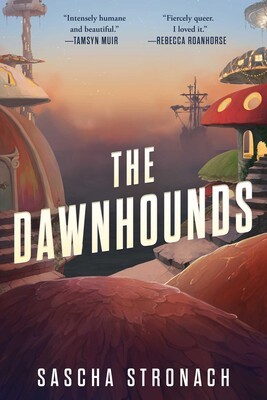

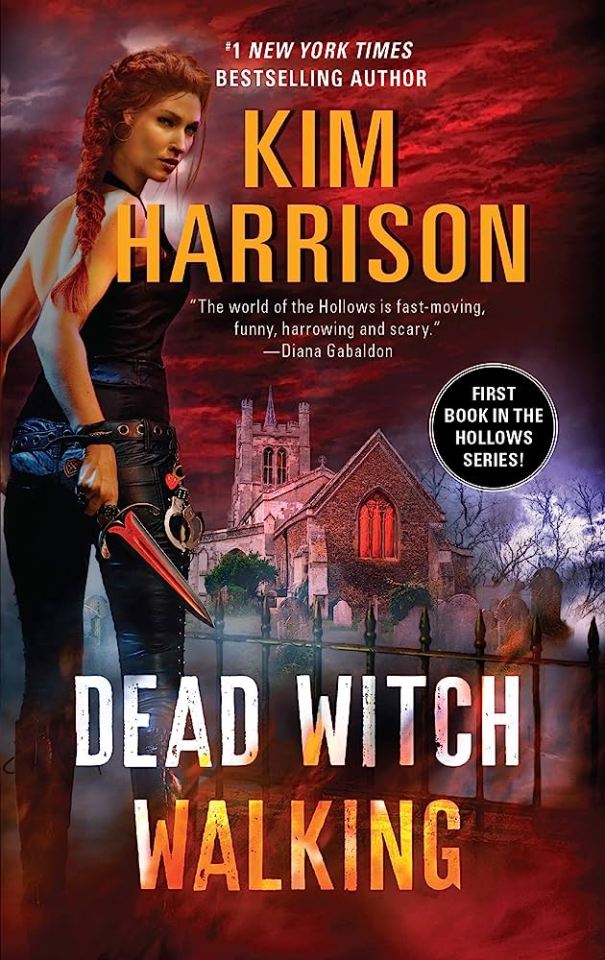
The Dawnhounds by Sascha Stronach
Like Three Parts Dead, The Dawnhounds is a book where you just kind of have to let the story and the world wash over you. It skirts the line of scifi and fantasy, with a futuristic world of environmentally friendly mushroom houses and deadly fungi bio weapons next to literally god-given superpowers and near-immortality. It's really cool and unlike anything else I've ever read. Bonus: it’s also sapphic!
The Hundred Thousand Kingdoms (Inheritance Trilogy) by N.K. Jemisin
Another example of a world that feels wholly like its own organically developed thing, with societal structures developed around the magical aspects and a presence of gods and demi-gods, many of whom walk the streets and will smite you if you piss them off.
Dead Witch Walking (The Hollows series) by Kim Harrison
Okay, here we have an actual urban fantasy. While I got a bit worn out by the many, many love interests throughout the series, the worldbuilding is simply phenomenal and relies heavily on a well-developed alternate history. Basically, magical beings such as vampires, werewolves, elves, fairies, witches, etc, used to exist secretly alongside us, but when humanity delved into genetic research instead of the space race during the cold war, an engineered virus ended up wiping a good chunk of us out and the magical beings stepped in to stop us from going extinct. Now in the modern day, we co-exist but tensions remain. Our main character is a witch who, alongside her roommates (a vampire and a fairy) solve mysteries and crime and end up unveiling secrets about their world centuries in the making.
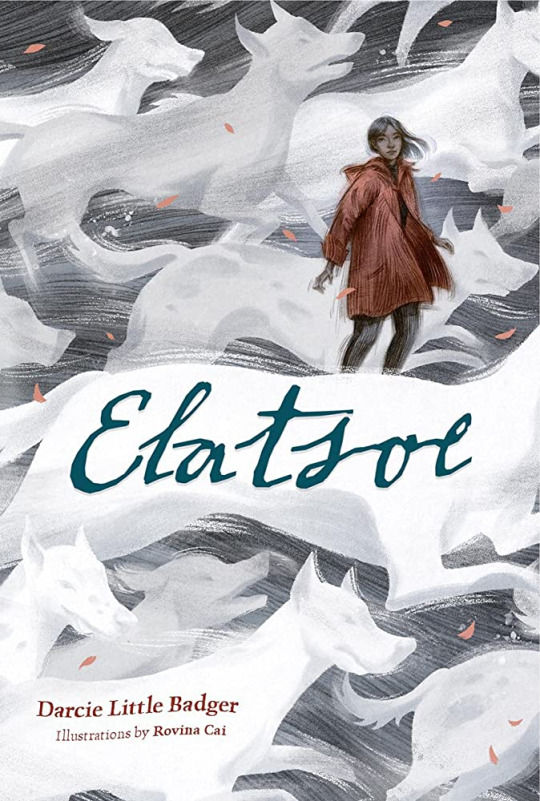

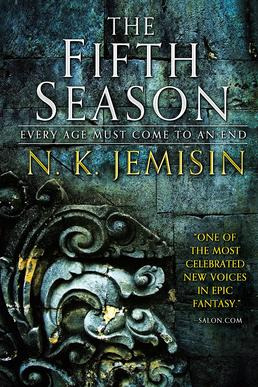
Elatsoe by Darcie Little Badger
Another urban fantasy, this one aimed at young adults and featuring indigenous mythology alongside creatures such as vampires and ghosts. We follow a young apache girl with the ability to raise ghosts as she works to solve the murder of her cousin.
Red Sister (Book of the Ancestor trilogy) by Mark Lawrence
Honestly, most of what I've read by Mark Lawrence so far could be featured on this list (special shoutout to his Broken Empire trilogy!). We follow a young girl training to become an assassin in a slowly dying world, where ice is overtaking the land and only a small band along its middle is habitable, kept alive by a mirror in the sky sharpening the dying sun's light. Question is, how long will this machine last, and what even is it? Very dark but very good.
The Fifth Season (The Broken Earth trilogy) by N.K. Jemisin
Listen, N.K. Jemisin gets to have two books on this list, okay, she is very good at what she does. In a world regularly torn apart by natural disasters, a big one finally strikes and society as we know it falls, leaving people floundering to survive in a post apocalyptic world, its secrets and past to be slowly revealed. We get to follow a mother as she races through this world to find and save her missing daughter.
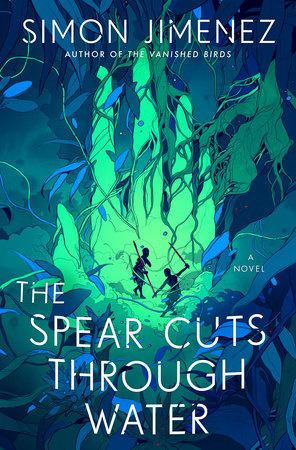
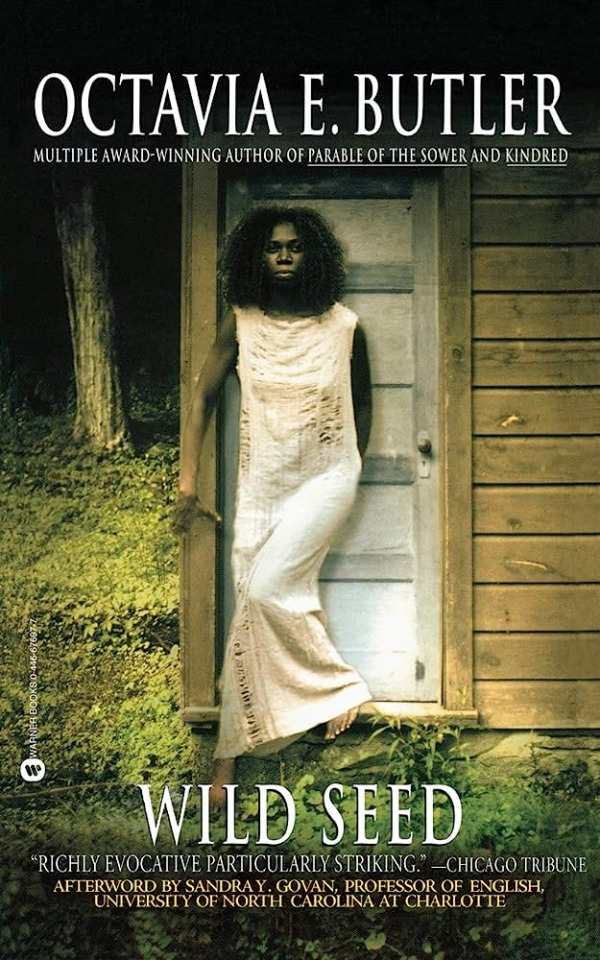
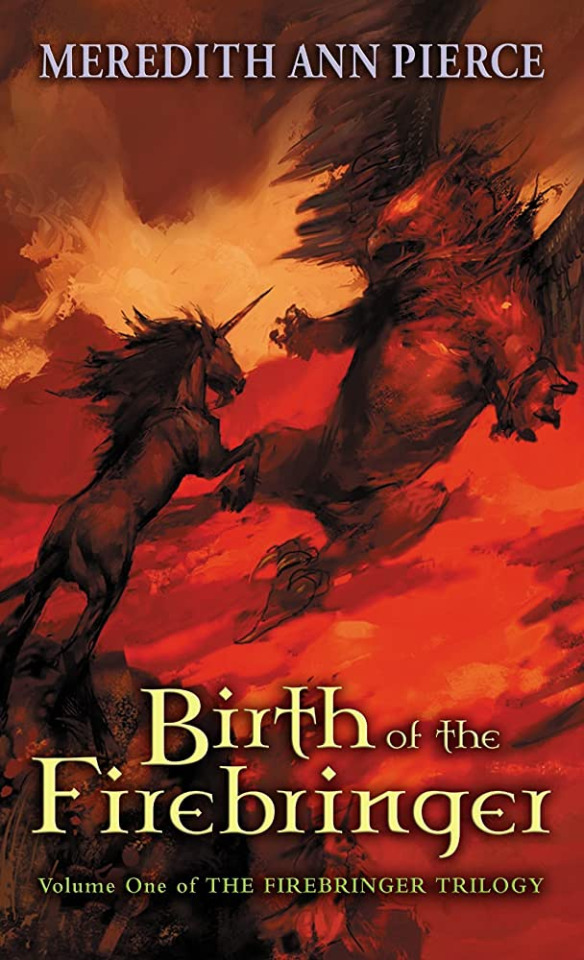
The Spear Cuts Through Water by Simon Jimenez
AKA the book the killed me. Two boys travel throughout their land with the body of a god as her horrible, horrible children try to hunt them down. It's hard to explain more than that, but trust me when I say the narrative voice and literary techniques are incredibly unique in how they blend past and present, reality and story, lead and bystander. Truly an experience. Bonus: gay romance!
Wild Seed by Octavia Butler
Master of slightly fucked up romance, Octavia Butler knocks it out of the park in this story featuring two immortals struggling throughout the centuries. What do you do when there is only one other person remotely like you, and you simultaneously can't stand them and can't live without them? Apparently, you turn yourself into a dolphin for a while.
Birth of the Fire Bringer by Meredith Ann Pierce
Cards on the table, it has been a great many years since I actually read this, and just as many years spent meaning to read the sequels (I have a lot of stuff on my tbr okay, don’t judge me), but I do remember it making a great impact on me back in the day. Our main character is a unicorn! Fighting wyverns and gryphons! How cool is that!
Bonus AKA I haven’t read these yet but they seem really cool


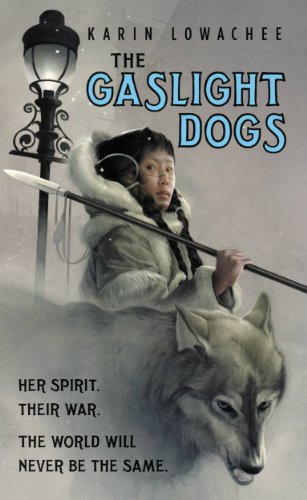
The Surviving Sky by Kritika H. Rao
From Goodreads: This Hindu philosophy-inspired debut science fantasy follows a husband and wife racing to save their living city—and their troubled marriage—high above a jungle world besieged by cataclysmic storms.
High above a jungle-planet float the last refuges of humanity—plant-made civilizations held together by tradition, technology, and arcane science. In these living cities, architects are revered above anyone else. If not for their ability to psychically manipulate the architecture, the cities would plunge into the devastating earthrage storms below.
Clean Sweep by Ilona Andrews
Urban fantasy but the vampires are aliens? Sign me the fuck up
The Gaslight Dogs by Karin Lowachee
From Goodreads: At the edge of the known world, an ancient nomadic tribe faces a new enemy-an Empire fueled by technology and war.
#thanks tumblr for fucking me over and posting the draft before i was done#anyway its finished now sorry for the confusion#nella talks books#long post#book recs
124 notes
·
View notes
Text
02/26/2015 21:05:23 PST
>SEEK: Search “Deacon Keller”.
>Searching...
>Unable to locate individual(s).
>Reconnecting with “Deacrophone”, please stand by…
>Connected.
>Automatic transcription protocol initiating, please stand by…
>Start.
[Rumbling of tires against asphalt and of wind against carrosserie. Occasional clicking of a turn signal, gentle murmur of a radio put way down low – 102.7 KISS FM maybe? Otherwise silence goes on for 11 minutes, 2 seconds.]
UNKNOWN: Don’t worry, I’m not taking you anywhere to kill you.
[Finally, tires screech against asphalt. Engine ceases with a click, followed by the sound of a seatbelt undone, driver seat belt missing alarm chirps on for a bit until door opens, closes. Then, closer now, another door opens.]
UNKNOWN: Come on, Keller.
[Ruffling, a seatbelt clicking open, and a final slam of a door followed by two sets of footsteps, one steady, the other irregular. A light push, and a grunt.]
UNKNOWN: Delivery, one sheriff.
Bennett, A. : (Dryly) Thank you, Jerome. And again, I am sorry for the inconvenience.
Jerome Smith !!! : [A sigh.] It's fine. Magnus is alright, a bit injured, but alright. I'm fine, physically. Keller's got some powerful disciplines that's for sure. [A pause.] How was London?
Bennett, A. : It was exhausting, and honestly humiliating at times, but I got what I needed.
Smith, J. : Yeah. You can tell me more about it if you want, when there aren't ears listening.
[A pause. they know :> but also they know ? :| ]
Smith, J. : I have a question. Are you aware of how he found our address?
Bennett, A. : I assumed he got it in the police database, but I could be wrong. I'm actually not aware of how much information on civilians cops usually have access to, but knowing the government overreaches I've seen in my lifetime in this country, I wouldn't be surprised. [Pause.] And for what I've found back home, for now, I'd rather keep my cards close to my chest, and out of Grimslayer sights. I'm sure you understand.
Smith, J. : Yeah, I get that. [Throat clears.] Welp, thanks for taking him. I didn't want to just leave him tied up on the streets in case another hunter saw him and took the chance. I'm going to be vampire-proofing the house a lot more to prevent things like this from happening again. He was able to take a bite of Magnus, but luckily didn't turn him or anything. Probably just took some blood. [A pause.] Whatever you two have going on, you better figure it out soon. I have a sneaking suspicion that is what influenced this fight, and I would prefer not to deal with another one. I'll try to keep Magnus away from Keller in the meantime.
Bennett, A. : [Sigh.] I'm going to be honest, Jerome, regardless of his... issues with me, he is responsible for his actions. I tried to explain everything to him, but you know how I am... I've never been the best with words.
Smith, J. : [He snorts.] You could say that again. Yeah, I get it. But I'm gonna make sure that you know Magnus is the same way. He's his own person, and you know how he gets when he gets determined to do something. We all have our own reasons for doing what we do. [Another sigh.] I apologize for being a bit blunt. I didn't sleep last night and only took a two hour nap earlier, which didn't help much.
Bennett, A. : [A sharp exhale, vaguely resembling a laugh.] I'd be a hypocrite if I couldn't handle bluntness. Regardless, I am painfully aware of Magnus's autonomy. But you've got a better handle on him than I do on Deacon. I barely know him.
Smith, J. : [A sigh.] Yeah, I know. But I don't have anyone else to turn to when it comes to Keller. [A pause.] Welp, I guess I'll be heading out. [Closer to the microphone.] Keller, I fully expect you to pay for the damages that you have done to our front door when you broke it down. If not, I will sue you for breaking and entering without a warrant.
Keller, D. : [Huff.] Sure.
Smith, J. : Good night, gentlemen. [Footsteps in dried grass.]
Keller, D. : [Silence.] Will you untie me?
Bennett, A. : [A pause.] Yea, yes, of course. Wait a second. [Shuffling of clothes, subtle click of a pocket knife and the grinding of a blade against rope.] Can you walk?
Keller, D. : Thanks. [Tearing of fabric.] Yes, I can walk. [One step, then a thud.]
Bennett, A . : No, you cannot. [Rustling of dried grass.] I could carry you, if you'd prefer. (Softly) But I'm guessing your ego couldn't take that, could it?
Keller, D. : [Silence, interrupted by the shifting of bodies against each other and the rustling of fabric and dried grass.] Let’s go for the police station, I guess. (Coldly) It's the closest place that I have blood stored, besides my apartment, and I'll need to heal before I can walk again.
Bennett, A . : (Tenderly) Alright.
[Footsteps together, obviously at least two but only discernible as one.]
>End transcription.
>
>...|
>Store “deacon arthur blind date.txt” in Folder:”word on the street” under Directory: ME :3
24 notes
·
View notes
Text
Twitter Re acquisition Startegy Things that can be done to get Elon out from Twitter for good
(It is can, and it doesn't meant to be taken seriously anyway)
Please be kind when commenting and reblogging

Everything here are just options, not step by step:
Twitter blue or not, whenever Elon tweet something just make spam of pollings with questions or rephrased of "Do you want Elon Musk to be in Twitter in any job title? Yes or no." If you are afraid of getting accounts, then make dummy accounts. Remember to always vote "no" 😆 we can do it! Flood Elon's reply tweet sections woth that polling and nothing more, only interact with polling and like other polling with alike question to fight against bootlickers algorithm.
^This question is basically improved version of Elon's polling about whether he should step down from CEO position. Which he used the "no" As to move to other job position. This improved question will leave him no space to slip to other job position or even to just exist in Twitter.
Gather information about former twitter employees, make a group chat with them. Ask them about new and old twitter, the good and the bad. Make articles about it, go publish it everywhere.
Make all public posts settings on other social media about how bad twitter is for business and advertisements, tag local and international news and other influencers and request them to do the same.
Make one day or few days without twitter campaign to make social interest in it goes down, notify any local and international news media about this so they put it on news to make twitter popularity goes down and harms also humiliated Elon's megalomaniac and egomaniac side.
😇 Alternative "Good guy" Route😇 : Work together with HQ building owner (because Elon is renting it) to kick Elon out but keep everything intact.
Warning: ?? Unknown??
👽 🍹 Raid 51 But In HQ 🍹👽: Let's hold a gathering party to goes into Twitter San Fransisco HQ on Market Street! Go get barbecue, ice cream, juices, cold snacks and hold a picnic there and try to hold it in the HQ too (you can ask the building owner to open up the door cuz Elon doesn't pay the office) . The polices and armies will less likely arrest such a peaceful fun raid. Go feed the workers and passerby but not Elon.
If this is done then hold an open public job open requests to everyone in around the world and US to be engineers, website and logo designers, codings, etc. Twitter has branches around the countries
DELETE ELON MUSK ACCOUNT/S. Ban his phone number and e-mail.
If possible: Collect money to set a lawyer against him. Remember that Elon is stupid enough to challenge Wachtell (a big name in lawyer world). Go open public fundraising. Demand a high cost compensation from Elon.
News that hold information about lay offs:
More idea to try! 💡 if possible, you can ask the journalist in the news about name details of who got lay off
CEO: Parag Agrawal
Chief Financial Officer: Ned Segal
Head of Legal Policy: Vijaya Gadde
There are also people who get unemployed in Ghana as told in CNBC, the journalist who interviewed is Elliot Smith.
For news about the lay off, The Verge, Euronews, etc can be used.
HQ Location:
Xspace office
https://maps.app.goo.gl/XxtfQNmz3sNp4H1W6
Tesla Factories
Potential Allies for Twitter Take over:
Microsoft:
Meta
Wachtell
Warning: Don't publish this in Twitter, on DMs is fine. It is better if Elon Musk doesn't know about this so he can't prepare anything. Make sure that each accounts unfollowed and block elon musk Twitter too.
Oh anyway a good read:
#tesla#elon musk#elon#twitter#x corp#technology#AI#artificial intelligence#social media#facebook#tumblr#mastodon#plurk#business
68 notes
·
View notes
Note
Where can I read pulp novels like The Shadow and Doc Savage?
Archive.org is so much, much more than just the Wayback Machine. For posterity, they have completely digitized a tremendous amount of scifi and horror and adventure pulps, all available for reading and downloading in PDF, including the following:
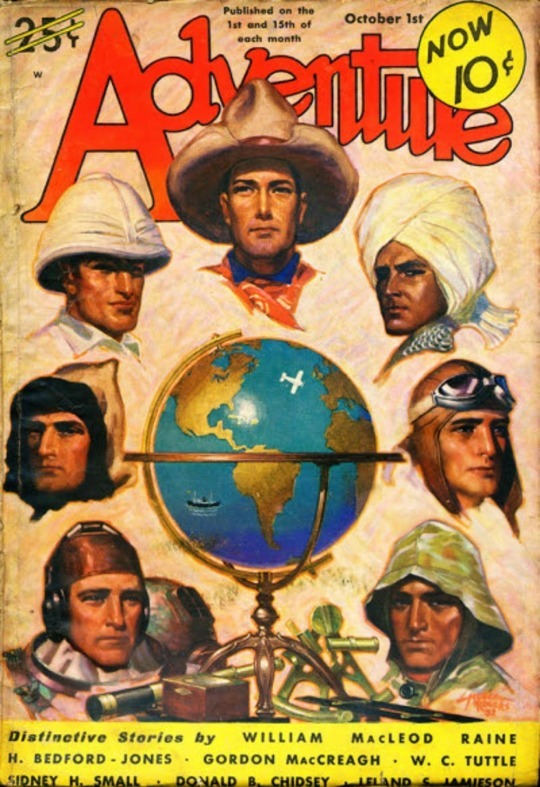
Adventure. Of the big two pulps, they have the entire golden age of possibly the greatest pulp mag of all time, Adventure, from 1914-1930, when they had Talbot Mundy's mystic adventures in Central Asia and India, and Harold Lamb's tales of the Mongols and Cossacks. It's incredible to just flip through them and find things like articles where people talk about what it's like to be bitten by a snake, or a firsthand account of the Italian invasion of Abyssinia, or polar exploration from the air. The stories are just the beginning, and in reprints, they don't include the fact they have wonderful maps of where the story is set.
Argosy is also available, the very first pulp magazine ever made starting in 1896. So you can read, among others, the first stories of Zorro, Tarzan, and fantasy novelist A. Merritt, as well as find letters pages where you see the weird prose H.P. Lovecraft, who the other letters that wrote in response did nothing but make fun of him. It's like witnessing cyberbulling in 1914 mixed with crank youtube comments.
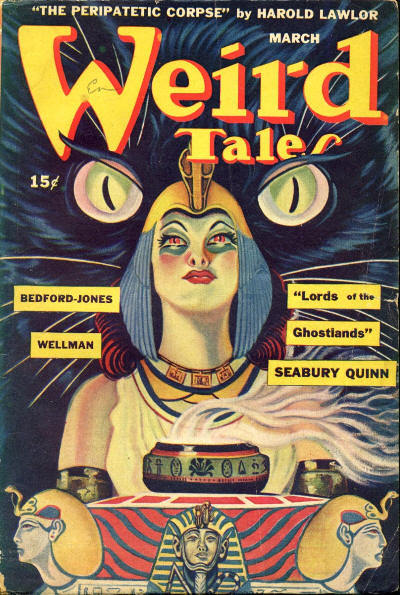
Weird Tales. Speaking of Lovecraft, they also have almost the entirety of Weird Tales. Unlike Adventure and Argosy, which sold in the millions, this one was a low seller, but through Robert E. Howard (creator of Conan) and the incredible worlds of Clark Ashton Smith (the true genius of Weird Tales), and the space adventures of C.L. Moore.
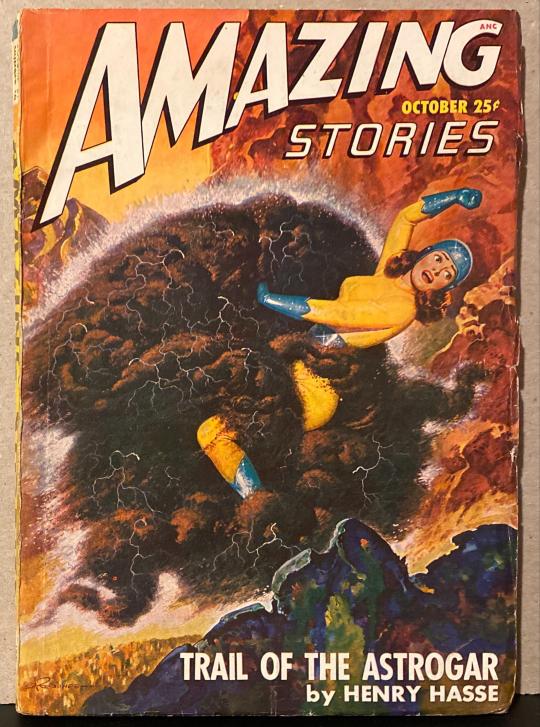
The first ever scifi pulp magazine, Amazing Stories, is available for reading. It created geek culture as we know it as he encouraged fans to message each other. So geek culture as we know it started in 1928 so a Luxembourg American weirdo could sell radio parts.
Don't sleep on a few of the minor ones. My favorite is Unknown, which has amazing work by L. Ron Hubbard, one of the best early fantasy and horror novelists. There's also A. Merritt's Fantasy, a reminder of a time he was THE name in Fantasy.

Unfortunately the hero pulps were mostly published by Street and Smith and are therefore not in Public Domain, but for those, there are great, cheap collections available that I recommend, especially as they have great historical material added by William Murray, pulp historian.
271 notes
·
View notes
Text
MY CULTURAL FIRSTS
Louise Brealey: My first kiss with Sherlock’s Benedict Cumberbatch
The actor and writer on taking acid at her first gig, meeting Michael Caine – and the moment she knew the BBC detective drama was going to be huge

Louise Brealey
LEO STAAR
Jake Helm
Sunday November 12 2023, 12.13am GMT, The Sunday Times
First concert I went to
I would like to say an unknown band called Blur in a tiny tent at Reading in 1994, but I accidentally took my first and very much last acid tab off an apprentice plumber called Tony from Swansea and watched the The on the big stage instead. It was all fine until the music started to creep up from the grass right up my legs and I was surrounded by terrifying gargoyles.
First pop-inspired fashion trends I adopted
I’m afraid I was a relentlessly unfashionable child. I was a square and listened to 10cc I’m Not in Love and The Eagles’ Desperado on repeat. I did love Robert Smith [from the Cure] but I didn’t wear enormous jumpers until my twenties.
First time I realised the BBC drama Sherlock was going to be a huge hit
The read-through was electric, which is not normal. Usually, it’s nerve-jangling because everyone is terrified they’re going to be sacked. A few weeks later I was watching the scene where Benedict first stuck his head round the lab door and said to Martin Freeman: “The name is Sherlock Holmes and the address is 221b Baker Street.” And I thought, yes it is. But really, I realised it was going to be huge when I was on early Twitter and the show went off. When Sherlock kissed [my character] Molly I got 60,000 followers in an hour.

Louise Brealey as Molly Hooper, right, and the cast of Sherlock
TODD ANTONY/BBC
First TV show I enjoyed
Like everyone at school I was obsessed by Jim’ll Fix It. I put two letters into one envelope to double my chances. One was to ask to meet John Travolta because I’d seen him star in The Boy in the Plastic Bubble, a film in which he plays this kid that can’t step outside a little plastic tent or he’ll die. The other was asking to meet the pop star Paul Young — I figured I had a better chance with him because he was from Luton. At least I didn’t do what my brother did and write to Jimmy Savile to ask to meet Rolf Harris.
First film I saw at the cinema
The first film I saw on my own at the pictures was Stand by Me at The Point in Milton Keynes. I had seen River Phoenix in the video for Ben E King’s single on Top of the Pops and was utterly love-struck. That was it. River was the only one for me. I still think River was the great acting talent of his generation.
First time I cried at the cinema
Watership Down. That was actually the first film I saw at the cinema. At the Palace in Wellingborough, when I was five or six. It was the first time I had any clue that creatures die. I was very affected by it — I called my next rabbit Bright Eyes.
First actor I admired
Joan Greenwood in Kind Hearts and Coronets. She was the single most beautiful woman I’d ever seen — and I was fascinated by her voice. I also loved Richard Burton’s voice, mainly because he narrated The War of the Worlds, my dad’s favourite album. I wanted to marry Richard Burton so I could listen to him all day long.
First thing I did to embody my new character Deb in Such Brave Girls
I started with her voice. I wanted to use the Northamptonshire accent. It’s the land of my birth and how my whole family talks except for me because I was a scholarship kid at a posh school, and I’ve never worked in it before. And then the clothes — Deb is obsessed with being feminine, so with her costumes it’s often about the cleavage. I think of her as a wily street rat in dangly earrings.
First famous person I met
I didn’t meet anyone famous until my first proper job, which was as a film journalist. The most exciting thing to happen was to go to a film set and sit in Michael Caine’s trailer. He asked: “Would you like to marry me?” I blushed and started stammering at him. And then he politely pushed a little dish of Murray Mints in my direction and I realised that he’d actually said: “Would you like a Murray Mint?”
52 notes
·
View notes
Text
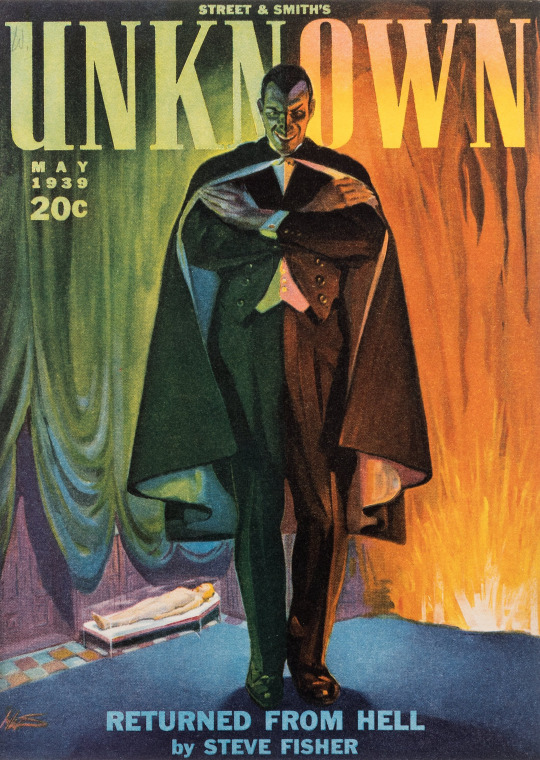
Unknown - May 1939 (Street & Smith). Cover art by Edd Cartier.
98 notes
·
View notes
Text
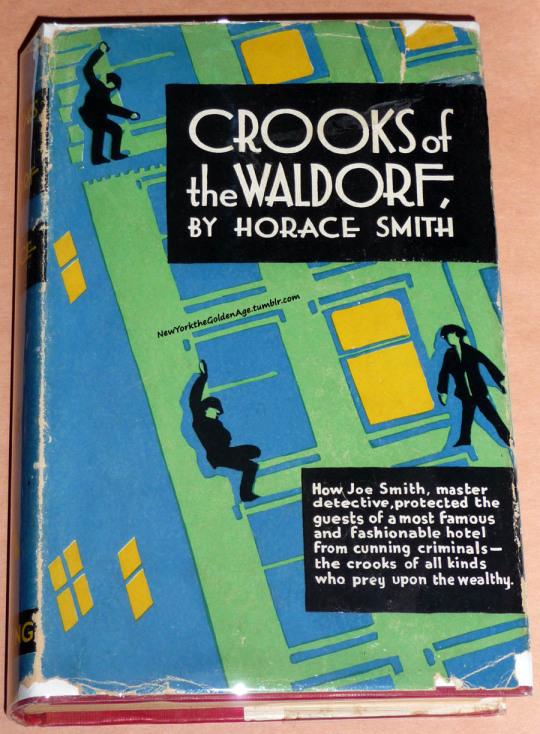
Crooks of the Waldorf by Horace Smith. London: John Long, 1930. Dust jacket illustrator unknown. The book recounts "the escapades of Joe Smith (no relation to the author), the house detective at the original Waldorf Astoria on 34th Street and Fifth Avenue (now the site of the Empire State Building.)"
Below is an excerpt from the book. It can be read online here, but can't be downloaded as anything other than a JPG.
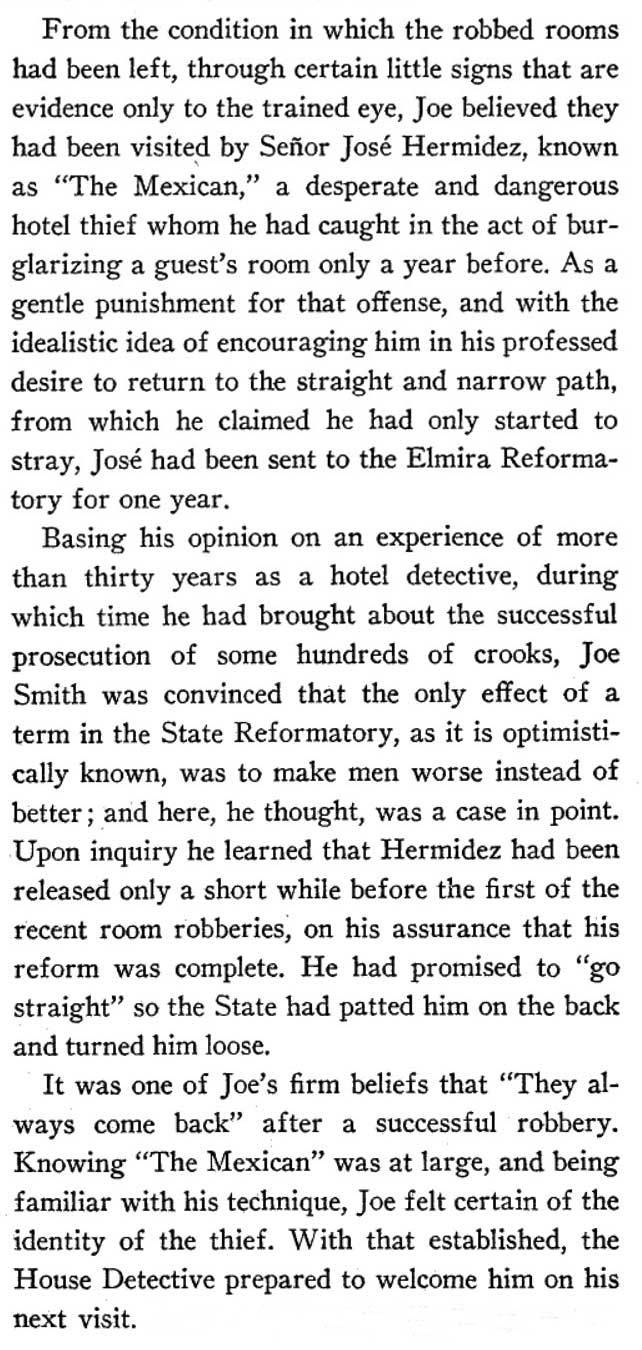
Top photo: Stuff Nobody Cares About
Bottom screenshot: University of Michigan
#vintage New York#1930s#mysteries#Crooks of the Waldorf#Horace Smith#books#detective stories#Golden Age Detection#GAD
47 notes
·
View notes
Text
The Best Album Per Year for Sixty Years
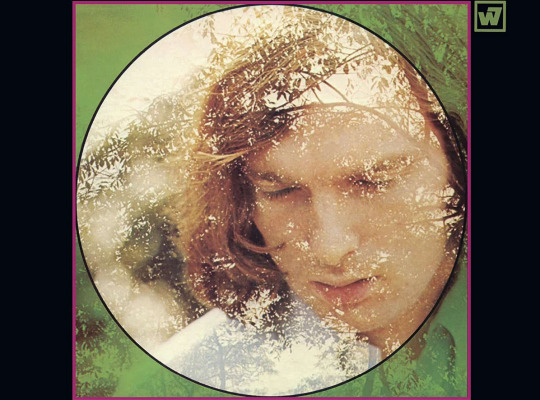
No-one asked for it, of course, but I do like making lists, so here's me pondering what have been the best Long Players in the album artform the past 60 years. I originally tried to keep it to just one per year, but many years that proved impossible: when listing multiple albums I have tried ranking them with the one I feel narrowly edges out the others first, and I use lower case to indicate an album that is not at the same level as others on the list but was the best I've heard from that time.
Feel free to have fun with the list and make up your own.
----------------
1962 Bob Dylan - Bob Dylan
1963 The Freewheelin' - Bob Dylan
1964 another side of - bob dylan
1965 Highway 61 Revisited - Bob Dylan
1966 Pet Sounds - The Beach Boys / Blonde On Blonde - Bob Dylan / Revolver - The Beatles
1967 Magical Mystery Tour - The Beatles / The Velvet Underground & Nico / Parsley, Sage, Rosemary & Thyme - Simon & Garfunkel / Safe As Milk - Captain Beefheart
1968 Astral Weeks - Van Morrison / The White Album - The Beatles / Bookends - Simon & Garfunkel / We're Only In It For The Money/Lumpy Gravy - Frank Zappa
1969 Let It Bleed - The Rolling Stones / Abbey Road - The Beatles / In A Silent Way - Miles Davis
1970 Bridge Over Troubled Water - Simon & Garfunkel / Plastic Ono Band - John Lennon
1971 Imagine - John Lennon / Blue - Joni Mitchell / What's Goin' On - Marvin Gaye/ 2 - Moondog
1972 Exile On Main Street - The Rolling Stones / Discover America - Van Dyke Parks / Clear Spot - Captain Beefheart / Ege Bam Yasi - Can
1973 Raw Power - Iggy And The Stooges
1974 Blood On The Tracks - Bob Dylan
1975 Horses - Patti Smith / Discreet Music - Brian Eno / Wish You Were Here - Pink Floyd / Velvet Donkey - Ivor Cutler
1976 The Ramones - The Ramones
1977 Low - David Bowie / New Boots & Panties - Ian Dury / Marquee Moon - Television / 77 - Talking Heads
1978 Music For Airports - Brian Eno / This Year's Model - Elvis Costello / Third (Sister Lovers) - Big Star / More Songs About Music & Food - Talking Heads
1979 Unknown Pleasures - Joy Division/ Fear of Music - Talking Heads / Into The Music - Van Morrison / Sheik Yerbouti - Frank Zappa / Rust Never Sleeps - Neil Young
1980 Remain In Light - Talking Heads / Closer - Joy Division / One Trick Pony - Paul Simon / Common One - Van Morrison
1981 Faith - The Cure
1982 Thriller - Michael Jackson / 1999 - Prince / 4 - Peter Gabriel / Too Rye Ay - Dexys Midnight Runners / Big Science - Laurie Anderson / Nebraska - Bruce Springsteen
1983 Swordfishtrombones - Tom Waits / Murmur - R.E.M. / Hearts & Bones - Paul Simon / Off The Bone - The Cramps
1984 Purple Rain - Prince & The Revolution / Hatful Of Hollow - The Smiths / Various Positions - Leonard Cohen / Reckoning - R.E.M. / The Unforgettable Fire - U2
1985 Don't Stand Me Down - Dexys Midnight Runners / Rain Dogs - Tom Waits / Around The World In A Day - Prince & The Revolution / Suzanne Vega - Suzanne Vega / Hounds of Love - Kate Bush / Hunting High & Low - A-ha
1986 Parade - Prince & The Revolution / So - Peter Gabriel / The Queen Is Dead - The Smiths / Graceland - Paul Simon / Steve McQueen - Prefab Sprout / Blood & Chocolate/King of America - Elvis Costello
1987 Sign O The Times - Prince / Strangeways Here We Come - The Smiths / The Joshua Tree - U2 / Actually - Pet Shop Boys / Tango In The Night - Fleetwood Mac
1988 Irish Heartbeat - Van Morrison & The Chieftains / Green - R.E.M. / Viva Hate - Morrissey / The Serpent's Egg - Dead Can Dance / Surfer Rosa - Pixies / Naked - Talking Heads / Introspective - Pet Shop Boys / I'm Your Man - Leonard Cohen / Blue Bell Knoll - Cocteau Twins
1989 Disintegration - The Cure / Technique - New Order / Doolittle - The Pixies / Oh Mercy - Bob Dylan / Avalon Sunset - Van Morrison / Rei Momo - David Byrne / Behaviour - Pet Shop Boys / Candleland - Ian McCulloch
1990 Extricate - The Fall / The Good Son - Nick Cave & The Bad Seeds / Songs For Drella - Lou Reed & John Cale / Jonathan Goes Country - Jonathan Richman
1991 Screamadelica - Primal Scream / Achtung Baby - U2 / The Bootleg Boxset - Bob Dylan/ Having a Party with - Jonathan Richman
1992 It's A Shame About Ray - The Lemonheads / Henry's Dream - Nick Cave & The Bad Seeds / Automatic For The People - R.E.M. / Good As I Been To You - Bob Dylan / The Future - Leonard Cohen
1993 Debut - Bjork / Dubnobasswithmyheadman - Underworld / Neroli - Brian Eno / Exile In Guyville - Liz Phair / Come On Feel - The Lemonheads / Zooropa - U2 / Vena Cava - Diamanda Galas
1994 Selected Ambient Works Vol. II - Aphex Twin / Toward The Within - Dead Can Dance / Let Love In - Nick Cave & The Bad Seeds / Dummy - Portishead / Autogeddon - Julian Cope / Vauxhall & I - Morrissey
1995 Anthology - The Beatles / The Ugly One With The Jewels - Laurie Anderson
1996 Boys For Pele - Tori Amos / Gone Again - Patti Smith
1997 Ladies & Gentlemen We Are Floating In Space - Spiritualized / The Boatman's Call - Nick Cave & The Bad Seeds / Time Out Of Mind - Bob Dylan / Vanishing Point - Primal Scream
1998 Up - R.E.M. / I'm So Confused - Jonathan Richman
1999 Play - Moby / I See A Darkness - Bonnie Prince Billy
2000 XTRMNTR - Primal Scream / All That You Can't Leave Behind - U2 / The Marshall Mathers LP - Eminem / Kid A - Radiohead / KY - Lemon Jelly
2001 Vespertine - Bjork / Love & Theft - Bob Dylan / No More Shall We Part - Nick Cave & The Bad Seeds
2002 The Eminem Show - Eminem
2003 Room On Fire - The Strokes / The Man Comes Around/Unearthed - Johnny Cash / The Wind - Warren Zevon
2004 Has Been - William Shatner / How To Dismantle An Atom Bomb - U2 / You Are The Quarry - Morrissey / The Milk-Eyed Mender - Joanna Newsom / Smile - Brian Wilson
2005 Another Day On Earth - Brian Eno / Le Fil - Camille
2006 Modern Times - Bob Dylan / Surprise - Paul Simon / Love - The Beatles
2007 for emma, forever ago - bon iver
2008 vampire weekend - vampire weekend
2009 No Line On The Horizon - U2 / The XX - The XX
2010 show me the face - michelle gurevich
2011 Angles - The Strokes / So Beautiful or So What - Paul Simon
2012 Life Is People - Bill Fay / Old Ideas - Leonard Cohen
2013 Comedown Machine - The Strokes / Crimson Red - Prefab Sprout
2014 Ghost Stories - Coldplay / 1989 - Taylor Swift
2015 ★ - David Bowie
2016 Lover, Beloved - Suzanne Vega / Stranger To Stranger - Paul Simon
2017 American Dream - LCD Soundsystem / antisocialites - alvvays
2018 music for installations - Brian Eno
2019 weezer (teal album) - weezer
2020 rough & rowdy ways - bob dylan
2021 happier than ever - billie eilish / lindsey buckingham - lindsay buckingham
2022 dragon new warm mountain i believe in you - big thief
12 notes
·
View notes
Text
Over the years, Ford’s attention to the residents of the Fifth District has bordered on the pastoral. When, early in his Congressional career, a visiting member of the Daughters of the American Revolution fell on a Washington street corner and broke her ankle, no one knew how she was going to get back to Michigan, until Ford offered to drive her there himself. A quarter century later, he still insists that every letter addressed to him receive a personal response, within twenty-four hours if possible. This includes high school debaters researching their topic, candidates for a small business loan and the female traveler who desires an introduction to officials at the U.S. embassy in London so “she won’t be lonely on Thanksgiving Day.” Following a rash of UFO sightings in Southern Michigan, Ford was showered with letters and telegrams demanding a federal investigation. He duly complied, even while acknowledging doubts about “planet people” possessed of the antigravity secret roaming the universe at fifty thousand miles per hour.
Ford’s Capitol Hill office opens at seven a.m., two hours ahead of his colleagues. “We campaign 365 days a year,” he reminds his staff. As a result, scarcely a birthday, wedding, obituary, civic award or graduating class in West Michigan goes unrecognized by the United States Congress. An elderly couple, otherwise unknown to their Congressman, is nevertheless touched to receive anniversary greetings under his signature. Years later, on learning that the wife is in a nursing home, close to death, Ford drops by for a consoling visit. “The strongest weapon in a political campaign is the good credited to you by word of mouth” -- this Ford credo goes a long way toward explaining him and the Congressional mindset he personifies. By stressing individual contacts over ideological mandates, Ford defines leadership in transactional terms, constituent service on a grand scale. His is a vision of government suspicious of visionaries. When asked the secret of his political success, Ford reveals more than he perhaps intends by replying, “I made everyone else’s problems my problems.”
-- Richard Norton Smith, on Gerald Ford’s devotion to his constituents during his nearly quarter-century of service representing Michigan in the U.S. House of Representatives.
Smith’s new book, An Ordinary Man: The Surprising Life and Historic Presidency of Gerald R. Ford [BOOK | KINDLE], is the definitive biography ever written about President Ford and is available now.
#History#Presidents#Gerald Ford#Gerald R. Ford#President Ford#Ford Administration#Richard Norton Smith#An Ordinary Man#An Ordinary Man: The Surprising Life and Historic President of Gerald R. Ford#Congress#U.S. House of Representatives#Jerry Ford#Harper Books#HarperCollins#Gerald R. Ford Library#Gerald R. Ford Presidential Museum#Politics#Presidential History#Books#Book Suggestions#Book Recommendations#Political Biographies
21 notes
·
View notes
Text
I'm not just trauma. I'm also academics.
Zach Reynolds
Dr. Nancy Chase
December 2, 2010
Engl 3040
Analyzing the Tragedy of Septimus Smith
Captured in Mrs. Dalloway there is a reflection of the socioeconomic structure of early 20th century England, as well as the patriarchal class and imperial ideologies that marked this era in British history. The burden a civilization informed by these ideologies puts on its constituents, both its lower and upper class members included, is of focal importance to the novel, because despite its celebrated achievements in psychology and temporal analysis, “it nevertheless incarnates a critique of Empire and the war, taking the state as the embodiment of patriarchal power, and the upholder of what even Richard Dalloway calls ‘our detestable social system’” (Tambling 58; Woolf 116). Central to this critique is the tragedy of the character Septimus Smith, a literary-minded veteran who survives the war only to succumb to the more subtle violence of imperial social ‘justice.’
The portrayal of Septimus’ ambitions, military service, and mental collapse provokes a sharp Marxist criticism of the classist and imperialistic tendencies of early 20th century England, and creates through its criticism an interpretation of this moment in history that is defined by the opposite discourses of Septimus and the aristocracy that drives him to suicide.
When Septimus is first introduced to the reader, he is described as “pale-faced, beak-nosed . . . with hazel eyes which had that look of apprehension in them which makes complete strangers apprehensive too” (Woolf 14). One cannot help but to label him a lunatic immediately following the passage detailing his hallucination of a sparrow chirping his name and singing in Greek, or his vision of “the dead . . . assembling,” with an unknown man, “Evans . . . behind the railings!” (24-25). In the passage that falls between pages 84 and 86, however, a brief biography is given of Septimus Smith, which informs the reader of his disposition before the war. Here, Septimus is made un-extraordinary as one of “millions of young men called Smith” (84), and characterized in his youth as a typical middle class idealist. He is “on the whole, a border case, neither one thing nor the other, might end with a house at Purley and a motor car, or continue renting apartments in back streets all his life . . .” (84). His experiences are summed up satirically in botanical terms, with Woolf imagining that were a gardener to voyeuristically look on Septimus at this early phase in his life, he would say that the young man, consumed with “such a fire as burns only once in a lifetime” with his love for “Miss Isabel Pole, lecturing . . . upon Shakespeare,” and his passion for “Antony and Cleopatra . . . Shakespeare, Darwin, The History of Civilization, and Bernard Shaw”(85) was flowering into a man ardently moved by his reverence for English society and the legacy of art of which his love Miss Pole was the beautiful embodiment.
So, when it came to war, it’s no surprise that “Septimus was one of the first to volunteer. He went to France to save an England which consisted almost entirely of Shakespeare’s plays and Miss Isabel Pole in a green dress walking in a square” (86). The war changes Septimus though. He faces the traumatizing experience of watching his friend die in front of him, yet he stoically does not mourn his friend, Evans, and is rewarded with a wife, a promising promotion in his career in England, and honors for his military service. Yet these things bring Septimus no contentment; the effects of the war on his personality begin to emerge, and he finds upon opening Shakespeare again that what mattered to him before the war, the “business of the intoxication of language – Antony and Cleopatra – had shriveled utterly” (88). Septimus exits the war with his idealism atrophied; but even worse, his connection to civilization is severed:
“He looked at people outside; happy they seemed, collecting in the middle of the street, shouting, laughing, squabbling over nothing. But he could not taste, he could not feel. In the tea-shop among the tables and the chattering waiters the appalling fear came over him – he could not feel” (87-88).
So disillusioned does Septimus become that he no longer can make the association of beautiful Miss Pole to the arts; rather he finds “the message hidden in the beauty of words . . . is loathing, hatred, despair” (88); and “human beings,” he observes, “have neither kindness, nor faith, nor charity . . . They hunt in packs . . . scour the desert and vanish screaming into the wilderness. They desert the fallen” (89). Compared to the idealistic youth who fell in love with Miss Pole, the post-war Septimus is a different person entirely, and suddenly there is an explanation for the lunatic introduced to the reader several pages earlier in the novel with his hallucinations of a man named “Evans.”
Following the detailed deterioration of Septimus’ mind comes his interaction with two different doctors, each a member of the English aristocracy; they are Dr. Holmes and Sir William Bradshaw. Septimus meets with these men at the request of his wife to receive diagnosis and treatment for his nervous breakdown. Coming from the proletariat places Septimus immediately in a position that is submissive to the bourgeoisie doctors Holmes and Bradshaw; it also puts his mental collapse into a context that allows for a Marxist interpretation of how his role in society has caused his neurosis to develop. In Dr. Holmes, Septimus first encounters the discourse of the English aristocracy, and finds to his disgust that it is a language informed by oppressive classist and patriarchal values that are ignorant of or deny the basic emotional needs that, not being met, are at the heart of Septimus’ mental breakdown.
In the passage written from Holmes’ point of view, the Smith’s are portrayed in condescending language that serves to communicate their lesser social rank and Dr. Holmes supposed superiority as a member of the bourgeois. He speaks down to his patient as one would to a child, and invokes the privilege of his rank as a doctor and aristocrat to force his way into the Smith’s home when his entry is refused by Septimus: “Did he indeed?” said Dr. Holmes, smiling agreeably. Really he had to give that charming little lady, Mrs. Smith, a friendly push before he could get past her into her husband’s bedroom” (91-92). In another example, Dr. Holmes belittles Septimus’ illness by telling him that “there [is] nothing whatever the matter” (90) with him, and suggests hobbies he could take up to distract himself, rather than offering any real medical advice. Patronizing Septimus’ illness as mere neuroticism is Dr. Holmes first step to establishing his superiority to Smith. In his second visit, a response to the patient’s talk of suicide, he invokes the patriarchal mores of male programming, and scolds Septimus for giving his wife “a very odd idea of English husbands” (91), implicating him as guilty of failing in both his duties to stoicism and patriotism as a male and a veteran.
In his failure to conform to typical male programming, Erika Baldt sees an applicability of Julia Kristeva’s definition of abjection to Septimus’ situation. Kristeva defines abjection as “the ambivalent, the border where exact limits between same and other, subject and object, and even beyond these, between inside and outside, [are] disappearing—hence an Object of fear and fascination" (qtd. in Baldt 14). Kristeva goes on to say that “at the limit, if someone personifies abjection without assurance of purification, it is a woman, ‘any woman’” (qtd. 14). Therefore, Septimus, for suffering from shell-shock, a form of hysteria, which was considered a feminine “extreme of emotion,” is seen as deviant because he does not comply with the “exact limits” of masculinity, and thus is deemed a “traitor to [his] sex” (Baldt 14). Just from his encounter with Dr. Holmes, then, Septimus is labeled as a deviant and potential threat to society. In addition, implied through the portrayal of traditionally feminine qualities in a male character, there is in the text a discourse of opposition to the biological essentialism that defined gender roles at the turn of the 19th century conflicting directly with a misogynistic and patriarchal discourse that is part of the discourse of the British Empire.
Further critique of the Empire comes out of Septimus’ encounter with Dr. Holmes in regard to the injustice of the war. It is, in fact, the callousness of his society that, internalized in Septimus, has caused his mental collapse – his interior monologue in reaction to Holmes’ insistence that nothing is wrong with him reveals this plainly: “So there was no excuse; nothing whatever the matter, except the sin for which human nature had condemned him to death; that he did not feel. He had not cared when Evans was killed; that was worst . . .” (91). It is this lack of remorse, which, because it is felt at the core of Septimus’ society and has been instilled in him through honors, through decoration as a war hero, that he has his nervous breakdown. This drives his guilt and drives him to condemn himself, and by extension, condemn the society that has instilled in him such callousness. As one critic aptly points out in his analysis, “This kind of satire on the author's part surely reveals the point of the outstanding irony in Smith's continuous self-condemnation of himself for his inability to feel. For it is precisely because he can feel that he is in such difficulty, and at such odds with society” (Samuelson 66). Having witnessed the devastation of war, in particular Evans’ death, places Septimus in the difficult and isolating position of knowing the truth of the war that is denied by the bellicose rationalization of leaders (embodied in Dr. Holmes, and later Bradshaw) who never saw the front line and dictated the terms of the war from the relative safety of their homes. Thus, “Septimus, appalled and revolted by the patriotic lies by which his fellow Londoners transform collective murder into "pleasurable . . . emotion" and himself into a war hero, is diagnosed as mad” (Froula 147).
At his encounter with Sir William Bradshaw, Septimus has worked up to his most vehement critique of his society. “Once you fall,” he says to himself, “human nature is on you. Holmes and Bradshaw are on you. They scour the desert . . . The rack and thumbscrew are applied. Human nature is remorseless” (Woolf 98). Indeed, the conflict between imperial discourse and humane discourse is at its most vehement in this encounter too. It is also worth nothing that the narrator sympathizes strongly with Septimus Smith when, for instance, she criticizes the real motivation behind Bradshaw’s socially celebrated benevolence:
“Sir William would travel sixty miles or more down into the country to visit the rich, the afflicted, who could afford the very large fee which Sir William very properly charged for his advice . . . Her ladyship waited [in the car] with the rugs about her knees . . . thinking . . . of the wall of gold mounting minute by minute while she waited . . .” (94).
The portrayal of Sir William that follows in the remainder of the passage is equally satirizing, invoking Septimus’ discourse of anti-classism and overall cynicism. This becomes apparent again especially when Sir William says that “he never spoke of ‘madness’; he called it not having a sense of proportion” (96). After which he invokes his power as a doctor and knight and makes Septimus’ case a matter of law, ‘prescribing’ him rest and isolation, as per the norm of the medicalized society of early 20th century Britain, when this is actually equivalent to a death sentence for Septimus. For Bradshaw, however, the rest cure – or isolation and quarantine to put it more plainly – is the only recourse for deviant cases such as the Smith case. Though it is disguised, this is actually a reaction of fear; “The discourse of the lunatics, who lack what Sir Bradshaw euphemistically refers to as a sense of proportion, threatens to undermine the strength of the British Empire, already in danger at the historical moment of the novel . . . the insane threaten to contaminate the "sane" who uphold and submit to the order of the Empire” (Smith 18). In other words, the discourse of the “insane” Septimus, who recognizes the impersonal treatment of Evans as a crime, must be suppressed.
Thus, Bradshaw, “worshipping proportion . . . not only prospered himself but made England prosper, secluded her lunatics, forbade childbirth, penalised despair, made it impossible for the unfit to propagate their views until they, too, shared his sense of proportion” (Woolf 99). Just as Septimus views the rest cure as a sentence rather than a treatment, so apparently does the narrator. It is a means used to silence the unruly “lunatic” who questions the established social order and the callousness of his society. This more violent side of proportion the narrator embodies as its sister: “Conversion is her name and she feasts on the wills of the weakly, loving to impress, to impose, adoring her own features stamped on the face of the populace” (100). Calling to mind images of colonialism in Africa, in India, and around the world, the word “conversion” finally sums up Septimus’ and the narrator’s view of imperial England. Through criticizing the figures in the novel who most symbolize the top of the power structure in England, the policies of the English state are criticized, both for their brutality within the country and without.
Ironically, Septimus is condemned by Bradshaw and Holmes not because he cannot feel, but because he feels too much. While the socially prescribed norm values stoicism and blind patriotism, he nevertheless can’t help but to feel repulsed by the lack of humanity in such values. Indeed, “Septimus is in many ways more sane than the "civilized" society to which he returns” (Henry 233). Septimus is not the only character in the novel to recognize his society is insane, however. Speaking of Mrs. Dalloway, Woolf herself states in the introduction to one of the early editions of her novel that “Septimus, who later is intended to be her double, had no existence; and that Mrs. Dalloway was originally to kill herself, or perhaps merely to die at the end of the party” (qtd. in Samuelson 60). Though the two characters never meet, it can be observed that Clarissa does share some of the same emotional qualities that Septimus has, if only to a lesser extent. She knows nothing of the war, and the trauma that it has inflicted on Septimus’ mind, for example, but she shares in his oppression by the patriarchal ideology of imperial England. She expresses her awareness of being so oppressed most keenly with her intense dislike of Sir Bradshaw, judging him “a great doctor yet to her obscurely evil, without sex or lust . . . but capable of some indescribably outrage – forcing your soul, that was it –“ (Woolf 184-85).
Most importantly, Clarissa Dalloway becomes the receiving vessel of Septimus’ message in her empathetic vision of his suicide and death. Faced with confinement, Septimus finally throws himself out of a window before the approaching Holmes can deliver him to Bradshaw for conversion into a yielding imperial pawn through the abuses of the rest treatment. “Lone witness of a reality that everyone around him denies, Septimus . . . suffers, owns, and tries to bear witness to his civilization's "appalling crime" but is finally forced to reenact it through a death that he expects to be read--a death that he offers as a gift, and that the narrative insulates from dismissal as madness” (Froula 149-50). Though he is “pushed” to suicide, Septimus also “jumps” (150). His final act is an act of defiance that through her empathetic vision Clarissa is capable of reading into, and even fantasizing about, before withdrawing back into the insulating world of her upper class marriage and submissive status as Richard Dalloway’s wife. Ultimately, Clarissa can’t die because as a part of the bourgeois, her life is valued more and thus insulated, doubly so because she is a female and deemed feeble by her patriarchal society.
Septimus, on the other hand, is born into the proletariat and is expendable. Even so, the meaning of Septimus’ life is not lost on Clarissa, and more importantly, can not be overlooked by the reader:
“If Clarissa's elegy for Septimus is inadequate to arraign the world before the truths it brands madness, Mrs. Dalloway captures his message within its fictional bounds for the world beyond them. Not Clarissa but we readers receive (or not) the message of Septimus's death, the costs of the war he names a "crime," the measure of what his life means to him, the infinite possibilities of his unfurling days” (151).
Thus, though Septimus exists in an isolated world apart from the superficial reality that every other character in the novel except for him resides in, his tragedy affects them all. Clarissa recognizes how in death, Septimus has preserved through his suicide “a thing . . . that mattered; a thing, wreathed about with chatter, defaced, obscured in her own life, let drop every day in corruption, lies, chatter” (Woolf 184). This thing may be his individuality, which he is unwilling to compromise to the tune of Bradshaw’s idols “Proportion” and “Conversion,” or it may be his message to a future generation to “resist,” to “defy.” Either way, Septimus’ conflict with the society that expels him represents the turmoil of his society as it quietly grieves the catastrophe of the war while stoically denying that it has taken any injury. The discourse of Septimus’ “madness” pitted against that of Dr. Holmes and Sir William Bradshaw in Mrs. Dalloway captures the tension between the patriarchal force of the dying imperial empire and the rising class discontent and interest in socialism in the early 20th century. His tragedy, in addition to questioning the established classifications of sanity and insanity, helps new historians to understand how some of the traditional and subversive discourses of this age in England interacted.
Works Cited
Baldt, Erika. "Abjection as Deviance in Mrs. Dalloway." Virginia Woolf Miscellany 70.(2006): 13-15. MLA International Bibliography. EBSCO. Web. 14 Nov. 2010.
Froula, Christine. “Mrs. Dalloway’s Postwar Elegy: Women, War, and the Art of Mourning.” Modernism/Modernity 9.1 (2002): 125-163. Project Muse. 14 November 2010. Web.
Henry, Holly. "Woolf & The War." English Literature in Transition, 1880-1920 44.2 (2001): 231-235. Academic Search Complete. EBSCO. Web. 2 Dec. 2010.
Samuelson, Ralph. “The Theme of Mrs. Dalloway.” Chicago Review 11.4 (Winter, 1958): 57-76. JSTOR. Web. 02 Dec. 2010
Smith, Amy. "Bad Religion: The Irrational in Mrs. Dalloway." Virginia Woolf Miscellany 70.(2006): 17-18. MLA International Bibliography. EBSCO. Web. 15 Nov. 2010
Tambling, Jeremy. “Repression in Mrs Dalloway’s London.” Essays in Criticism 39 (April 1989): 137-155. Print Copy
Woolf, Virginia. Mrs. Dalloway. London: Harcourt, Inc., 1925. Print.
#ptsd#trauma#marxism#imperialism#united kingdom#mrs dalloway#virginia woolf#essay#essay writing#research#student#academics#war#shell shocked#complex ptsd#suicide#mental health#New Historianism#literature#literary criticism
3 notes
·
View notes